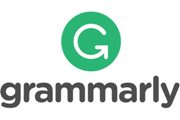PENERAPAN MODEL PEMBELAJARAN KOOPERATIF TIPE TEAMS GAMES TOURNAMENT (TGT) UNTUK MENINGKATKAN MINAT DAN HASIL BELAJAR SISWA DALAM PEMBELAJARAN IPS MATERI KEGIATAN EKONOMI BERDASARKAN POTENSI ALAM
Keywords:
Model pembelajaran Teams Games Tournament (TGT), Minat belajar, Hasil belajarAbstract
This research is motivated by the low interest and learning outcomes of social studies, especially in the material of economic activities based on natural potential. This is due to the lack of application of innovative learning models in the teaching and learning process. Based on these circumstances, the researcher has a solution to overcome this problem by using the Teams Games Tournament (TGT) type of cooperative learning model. The purpose of this study was to determine the increase in student interest and learning outcomes using the TGT learning model in social studies subjects, material for economic activities based on natural potential. The method used is Classroom Action Research (CAR). This research was conducted on fourth grade students of Pangluyu State Elementary School, Cisitu District, Sumedang Regency. This study uses the Kemmis and Mc. Taggart with four stages, namely planning, acting, observing, and reflecting. Data collection techniques used in this study were observation sheets, written tests and documentation. The results showed that the students' interest in learning increased in each cycle. The initial data obtained 47%, the first cycle increased to 74%, and the second cycle increased to 89%. Student learning outcomes also increased in each cycle. The initial data obtained 45%, the first cycle increased to 60%, and the second cycle increased to 90%. Based on the data from the research, it can be concluded that the application of the TGT learning model can increase the interest and learning outcomes of fourth graders at Pangluyu State Elementary School in the 2021/2022 academic year on economic activity material based on natural potential.
References
Warsadi. (2019). “Pengaruh Minat Belajar dan Motivasi Belajar”. Jurnal Pendidikan Bahasa Indonesia, Vol. 2, (3), 267–275.
Nurhasanah, S. (2016). “Minat Belajar Sebagai Determinan Hasil Belajar Siswa”. Jurnal Pendidikan Manajemen Perkantoran . Vol 1, (1), 128–135.
Ricardo. (2017). “Impak minat dan motivasi belajar terhadap hasil belajar siswa”. Jurnal Pendidikan Manajemen Perkantoran, Vol. 2 (2), 190–191.
Korompot, S. (2020). “Persepsi Siswa Tentang Faktor yang Mempengaruhi Minat Belajar”. Jambura Guidance and Counseling Journal. Vol 1, (1), 40–48.
Santi. (2021). Penerapan Model Pembelajaran Konstekstual (Contextual Teaching And Learning / CTL) untuk Meningkatkan Minat Dan Hasil Belajar IPS Materi Perkembangan Teknologi Transportasi. Skripsi pada PPS UNSAP: tidak diterbitkan.
Halimah, L. (2017). keterampilan mengajar. Bandung: PT Refika Aditama.
Kurnianto. (2013). Peningkatan Prestasi Belajar IPS Melalui Model Pembelajaran Kooperatif Tipe Teams Games Tournaments (TGT) Pada Siswa Kelas V Sdn Bronggang Cangkringan Sleman. Skripsi pada PPS UNY: tidak diterbitkan.
Fauziah, R. (2017). “Penerapan Model Pembelajaran TGT (Teams Games Tournament) untuk Meningkatkan Hasil Belajar Siswa pada Materi Sumber Daya Alam di Kelas III SD Negeri 70 Kuta Raja Banda Aceh”. Jurnal Tunas Bangs. Vol 1, 43-65.
Downloads
Published
How to Cite
Issue
Section
License
Copyright (c) 2023 Sebelas April Elementary Education

This work is licensed under a Creative Commons Attribution-NonCommercial-ShareAlike 4.0 International License.








